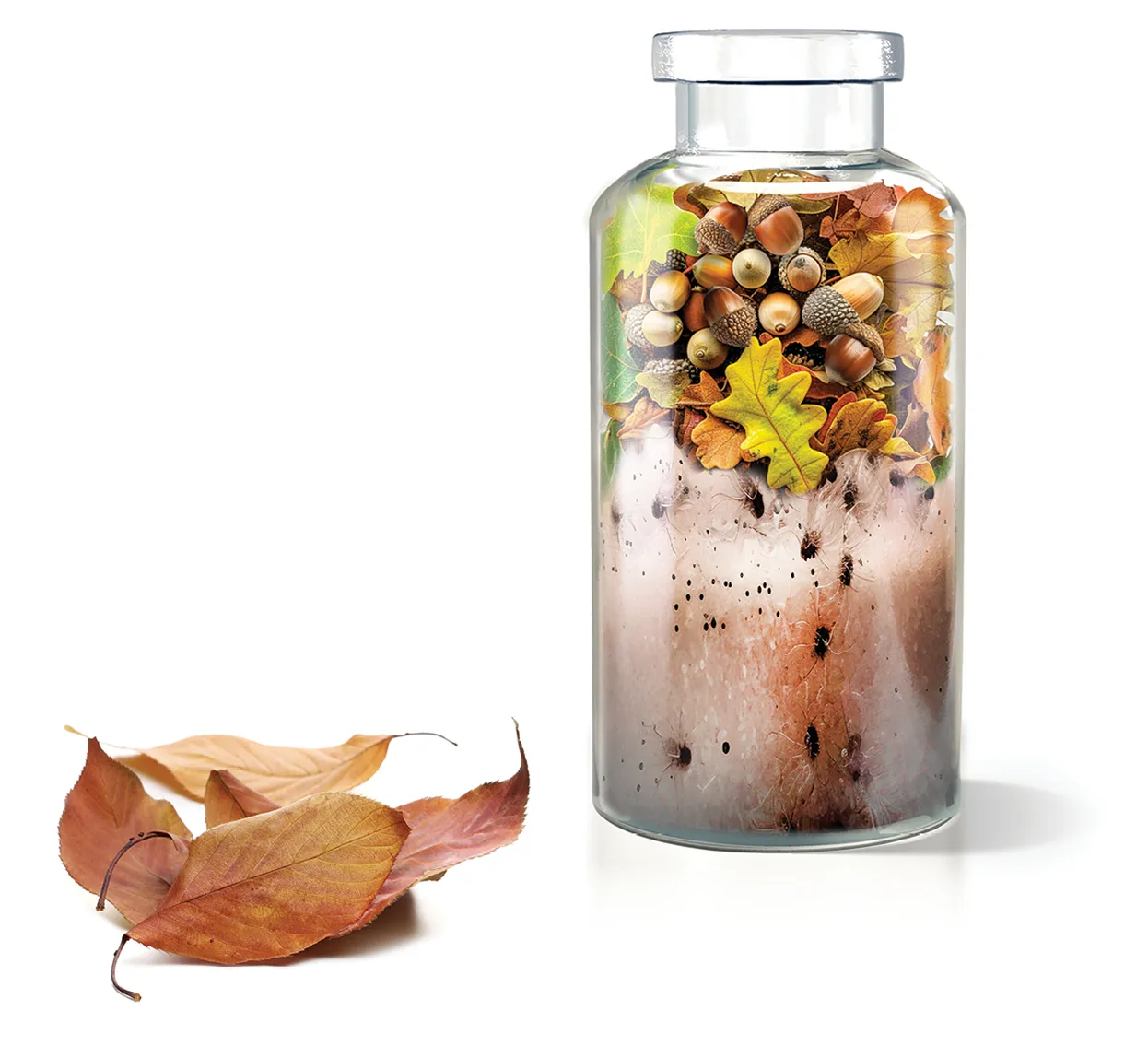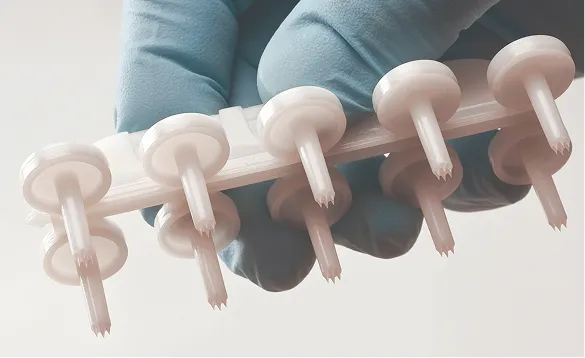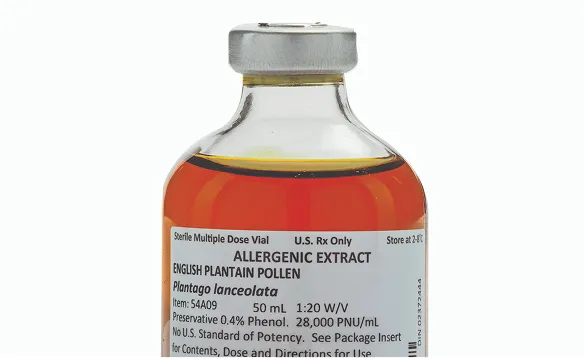Allergen immunotherapy is proven to help build tolerance to allergens, providing protection against allergic symptoms1,2
Allergen immunotherapy (AIT), such as allergy shots, uses naturally derived ingredients to work with the immune system and help improve outcomes for your patients.3
A study shows nearly 80% of allergy sufferers experienced moderate to significant symptom relief after completing AIT.4
About AIT
Over 100 million people across the United States suffer from allergies.* Studies have shown that AIT can help—and, in some cases, significantly improve quality of life.2,5
Although the mechanism of action is unknown, AIT has been shown to help reduce allergic reactions by desensitizing the immune system to allergens. It utilizes controlled exposure to specific allergenic extracts via subcutaneous immunotherapy (SCIT; administered via injection) and sublingual immunotherapy (SLIT; administered via tablet under the tongue).1,2 AIT is effective for the treatment of allergic rhinitis, conjunctivitis, and allergic asthma.2
AIT for allergic rhinitis has been shown to have persistent benefits even after it’s been discontinued as well as to reduce the risk for future development of asthma.2
By choosing to offer AIT to your allergy patients, you can provide them with a proven treatment option that may lead to long-term symptom relief.1,6
Looking to simplify treatment preparation?
Learn more about our expert extract formulation services.
*As of 2023.
Mechanism of action
The precise mechanism of action for AIT remains unknown. However, research shows it may help the immune system build tolerance to allergens, leading to reduced reactions over time.7,8
AIT may help by inducing the production of allergen-specific IgG antibodies, particularly IgG4. These “blocking antibodies” can bind to allergens before IgE does, reducing immune cell activation. Over time, AIT can modulate the immune system to increase tolerance to allergens, decreasing allergic reactions.1,9
IgE=immunoglobulin E; IgG=immunoglobulin G.
An effective option with established safety

AIT is a proven treatment option for patients with known allergies who cannot avoid exposure.7,9,10 Although results may vary for each individual, research supports its potential for long-term relief, with efficacy shown for up to 3 years in clinical trials.6-8,11-13
AIT has been shown to help2,7,9,10,15-21:
- Increase allergen tolerance, reducing symptoms upon exposure
- Improve perennial and seasonal allergy symptoms, including allergic rhinitis and conjunctivitis
- Reduce the need for additional medications
SCIT, commonly known as allergy shots, is the most common form of AIT

Customized injections target relevant allergens identified through patient testing22

Administered in-office with at least a 30-minute observation period after the injection to monitor and treat potential acute reactions3

Doses are typically increased 1-3 times per week during the build-up phase, reaching a maintenance phase in 3-6 months based on clinical judgment2
Stallergenes Greer allergenic extracts* are approved for use in SCIT for reduction of allergen-induced allergic symptoms. Refer to product-specific package inserts for complete indications.
Always review the package insert for specific contraindications, warnings, and precautions.
There are risks of injection site and/or systemic reactions.
*Allergenic extracts are manufactured by either Greer Laboratories, Inc., or Allermed Laboratories, LLC.
Talking to your patients about AIT
When choosing AIT, discuss its benefits, risks, and costs with your patients. Results vary from patient to patient, so it may help to manage expectations about2,23:
- Time needed to see results
- Duration of treatment
- Importance of adhering to the immunotherapy schedule
- Potential adverse events and when to consult a physician
- Controlling comorbidities like asthma prior to starting AIT
It is important to enable shared decision making with patients. Consider individual and clinical circumstances like additional health factors, insurance coverage, and travel time in your treatment discussion.




